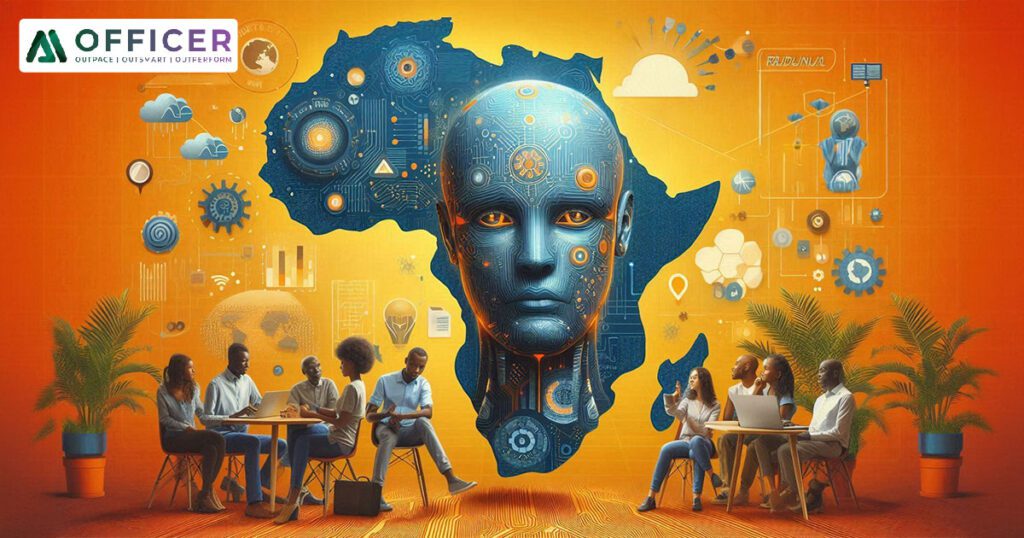
As the world’s youngest continent, Africa has the potential to harness the power of AI to drive sustainable development and improve the lives of its people. However, to ensure that AI is developed and deployed responsibly, it’s essential to engage with a wide range of stakeholders, including policymakers, researchers, civil society organizations and local communities.
WHY RESPONSIBLE AI MATTERS IN AFRICA
Africa presents a unique landscape for AI development. While the continent boasts a young and tech-savvy population, challenges like brain drain and limited digital literacy exist.
Responsible AI ensures these issues are addressed, with solutions developed that –
- Bridge the digital divide : Imagine AI tools that break down language barriers and cater to diverse user needs. This requires collaboration with local communities and developers.
- Prioritize ethical considerations : Algorithmic bias can exacerbate existing inequalities. Responsible AI necessitates robust data governance and algorithms that are fair, transparent and accountable.
- Empower local talent : Brain drain is a real concern. Building a thriving AI ecosystem in Africa requires fostering a skilled workforce through training initiatives and knowledge-sharing programs.
The African continent is on the cusp of an AI revolution. From tackling agricultural challenges to improving healthcare access, AI holds immense potential to drive sustainable development.
But for this potential to be fully realized, responsible AI development is crucial. This means ensuring AI solutions are designed and deployed in a way that benefits all Africans, not just a select few.
Just like a vibrant tapestry requires diverse threads interwoven, responsible AI in Africa necessitates collaboration.
Thus the need to engage a wide range of stakeholders which is the key to building an inclusive AI ecosystem.
WHY STAKEHOLDER ENGAGEMENT MATTERS?
- Identifying priorities & needs : Stakeholders from healthcare, education, agriculture and finance can pinpoint areas where AI can have the most significant impact. This ensures AI solutions address real-world challenges faced by African communities.
- Addressing challenges & risks : Collaboration allows for identifying and mitigating potential pitfalls, such as data bias and privacy concerns, before they hinder progress.
- Building trust & acceptance : By involving stakeholders in the development process, we foster trust in AI as a tool for positive change. This promotes its responsible use and societal acceptance.
- Promoting inclusive development : Collaboration ensures AI benefits are distributed equitably across diverse populations, empowering marginalized communities and preventing the exacerbation of existing inequalities.
While taking action –
- Identify stakeholders : Map out key players – policymakers, researchers, NGOs and local communities – who will be impacted by AI deployment.
- Communication channels : Establish clear communication platforms, like workshops, forums and online spaces, to facilitate dialogue and collaboration.
- Capacity building : Provide training programs for stakeholders to enhance their understanding of AI and its implications for their sectors and communities.
- Fostering collaboration : Encourage collaboration among stakeholders to develop joint solutions that address challenges and ensure AI benefits all.
- Transparency & accountability : Maintain an open and accountable approach. Involve stakeholders in decision-making and keep them updated on progress and outcomes.
A shining example of collaborative action is the first UNESCO-affiliated AI center in Africa, established in Morocco [Source].
This center fosters responsible AI development by focusing on capacity building, ethical considerations, and promoting collaboration between diverse stakeholders.
This initiative aligns perfectly with the principles of stakeholder engagement for inclusive AI development.
At AI Officer, we’re passionate about promoting responsible AI in Africa. We believe in the power of collaboration and offer a range of services to help you navigate the responsible AI landscape, including –
- AI Strategy Development : Craft a robust AI strategy aligned with ethical principles and local needs.
- Mitigating AI Bias : Identify and mitigate potential biases in your AI models to ensure fairness and inclusivity.
- Building diverse teams : We can help you build a diverse and inclusive AI development team to foster a broader range of perspectives.
What are your thoughts on responsible AI in Africa? How can we leverage stakeholder engagement for more inclusive AI development? Share your insights in the comments below!
Stay tuned to our blogs for more insights into the world of AI.
Get in touch with our AI officers today! We offer customized AI solutions tailored to your specific needs. Leverage our expertise to navigate the AI landscape and build a future that’s not just innovative, but responsible and impactful.





